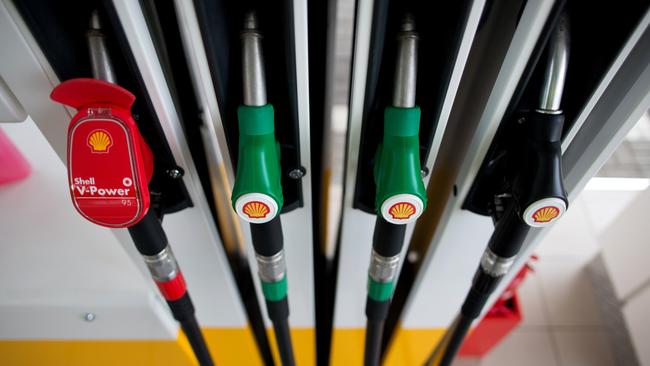Shell lashes Labor’s LNG export trigger policy
A raft of policy clampdowns may make supply shortages worse for the eastern seaboard, Shell says.

Energy giant Shell has attacked the Albanese government’s planned changes to the LNG export trigger, saying a raft of policy clampdowns may make supply shortages worse for the eastern seaboard.
The three LNG plants — owned by Santos, Shell and Origin Energy — are currently controlled by the Australian Domestic Gas Security Mechanism, which gives the government power to halt LNG exports if a domestic shortfall year has been declared.
However, since coming to power Labor has criticised the ADGSM, or gas trigger, as an unwieldy tool that takes too long to put in place as the government must make its shortfall declaration before November prior to the following calendar year.
Reforms to the mechanism, due to start on April 1, means a decision to activate the trigger will be reviewed every three months rather than annually.
Shell said proposed changes to the ADGSM would make matters worse for the sector and hit back at the way big users had campaigned on the mechanism.
“Rather than act as an enabler to encourage greater investment and supply in additional gas development, over time the ADGSM has provided a convenient cover for some sections of the community to hold the Queensland LNG projects publicly and incorrectly accountable for providing the Australian east coast’s gas supply, pricing, and security solution,” Shell said in its submission to government.
“Though the ADGSM provides confidence to a proportion of gas users that supply is available, the ongoing ‘pull the trigger’ rhetoric has consistently fuelled market expectation that LNG projects have an uncapped capacity to solve all issues of supply security. This mechanism, by its very existence, has introduced complacency and has rewarded not very prudent energy procurement by large customers. I.e. in the hope (and through regulations) that there will be limitless supply and at low prices which is not the energy reality anywhere in the world.”
The Australian Aluminium Council said last week reforms to the ADGSM made sense, saying it would make the gas export trigger more responsive to meet domestic demand.
“The Council has previously supported facilitation of a more immediate trigger to make the ADGSM, rather than for the following year, should a shortfall in gas become apparent to the Minister to help address sudden shocks or shortfall risks. The Council believes the measures proposed in the guidelines are adequate, with the trigger now being quarterly,” Australian Aluminium Council chief executive Marghanita Johnson said in a submission to the federal government.
However, Shell criticised the move and broader interventions including the code of conduct currently being worked on with industry.
“Recent market interventions (particularly the proposed Mandatory Code and “reasonable” pricing mechanism) are only expected to exacerbate these shortfalls. Key states with large populations and manufacturing bases have continued to resist the development of new sources of supply and a significant number of gas customers have been conditioned to wait for intervention and the hope of better prices, rather than contracting for long-term supply.”
Shell said the federal government should rethink its approach.
“Shell urges the government to reconsider the architecture of the mechanism in order to provide security for all long-term export contracts. This will signal to investors and trading partners that Australia is a stable and reliable investment destination.”
The gas industry is already on edge as Labor moves to revamp the gas industry’s code of conduct to cut prices while unions say the government has not done enough to bring energy costs down for manufacturers.
Australian manufacturing firms were last year offered gas contracts of up to $35 a gigajoule — more than triple levels from a year ago — with the Australian Industry Group warning the surge could lead to job losses, deferred investment and possible manufacturing plant closures.
Still, prices have fallen back considerably since that time although remain above levels of five years ago.
A shortage of gas on Australia’s east coast this year is still possible despite an improvement in the outlook for the market, the competition regulator warned in January, although LNG exporters have sufficient supplies to plug any gaps.
Users could face a supply shortfall of 30 petajoules of gas if the big Queensland LNG producers export all of their uncontracted gas, less than a 56PJ gap forecast in July 2022.
While the three LNG players currently have enough gas to dodge a domestic shortfall, some uncertainty remains in the market according to the Australian Competition and Consumer Commission.
Anthony Albanese said in December his government will consider adopting a national gas reservation policy as a longer-term solution to drive down energy prices.
The Aluminium Council said there was merit in pursuing keeping a set amount of gas for local use. Western Australia’s reservation policy requires LNG producers to set aside 15 per cent of production for domestic use.
NSW and Victoria have been pushing for a national gas reservation scheme and Queensland says it does the heavy lifting on domestic gas supply, indicating other states could do more.


To join the conversation, please log in. Don't have an account? Register
Join the conversation, you are commenting as Logout